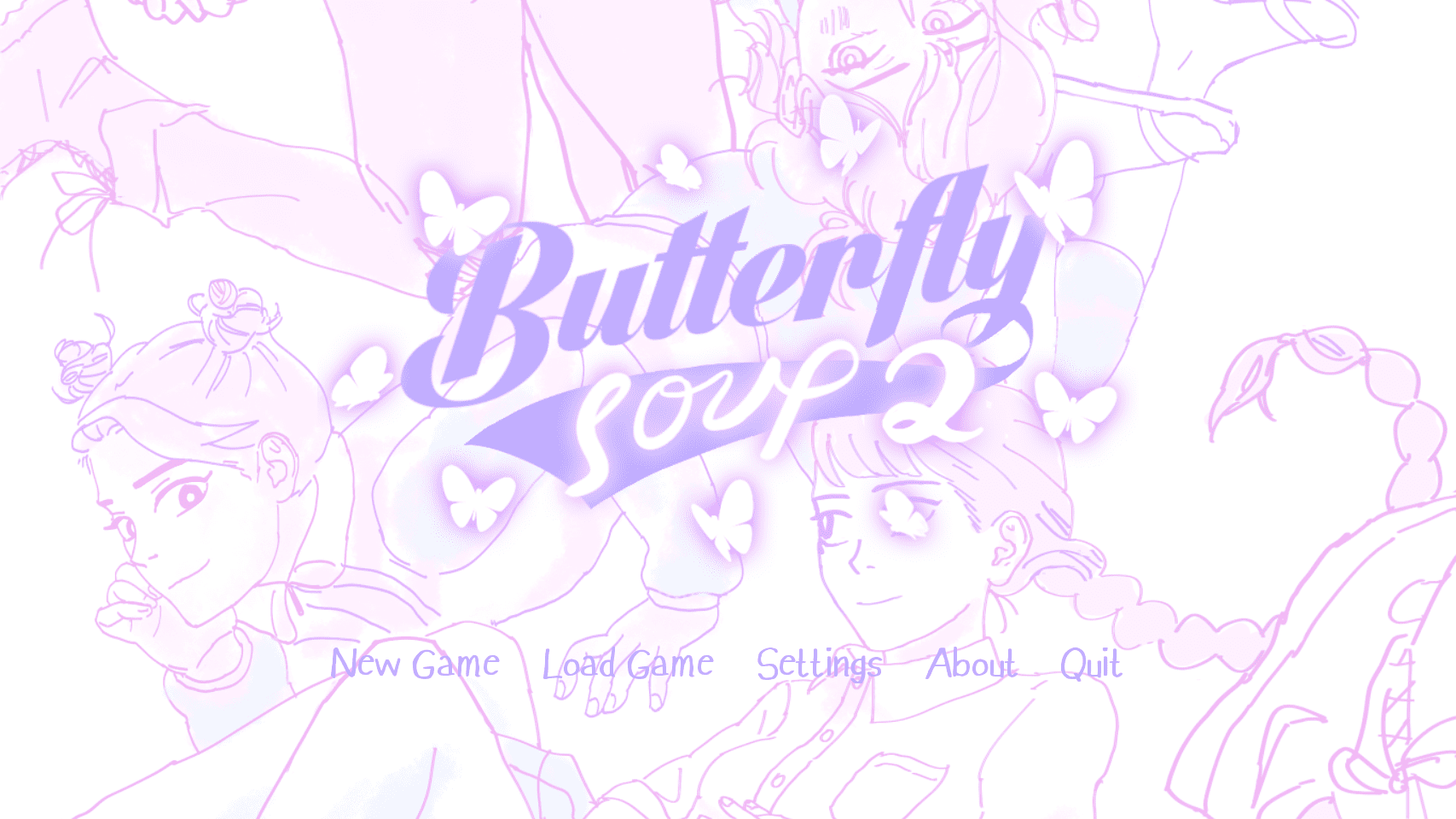
Butterfly Soup 2 Review – A visual novel not just for the queers
There are a whole bunch of idiosyncratic jokes wedged into Butterfly Soup 2, like an overstuffed burrito, that made me guffaw audibly. One of them involves Akarsha, the resident comic relief, and her slight embarrassment over how her father would mispronounce English words and names. Take for instance his erroneous use of the phrase “thanks god” , which reminds me of my own Chinese-speaking father’s tendency to misplace his “s”es when speaking in English. Or when he refers to the messaging app as “WhatApps”. Or when he earnestly pronounces a friend’s name, Kristy, as “Crispy”—all of which will inevitably reduce my siblings and I into giggles. Such anecdotes are baked into the writing that is so characteristic of the original Butterfly Soup, and they’re still part of what made the sequel so compelling.
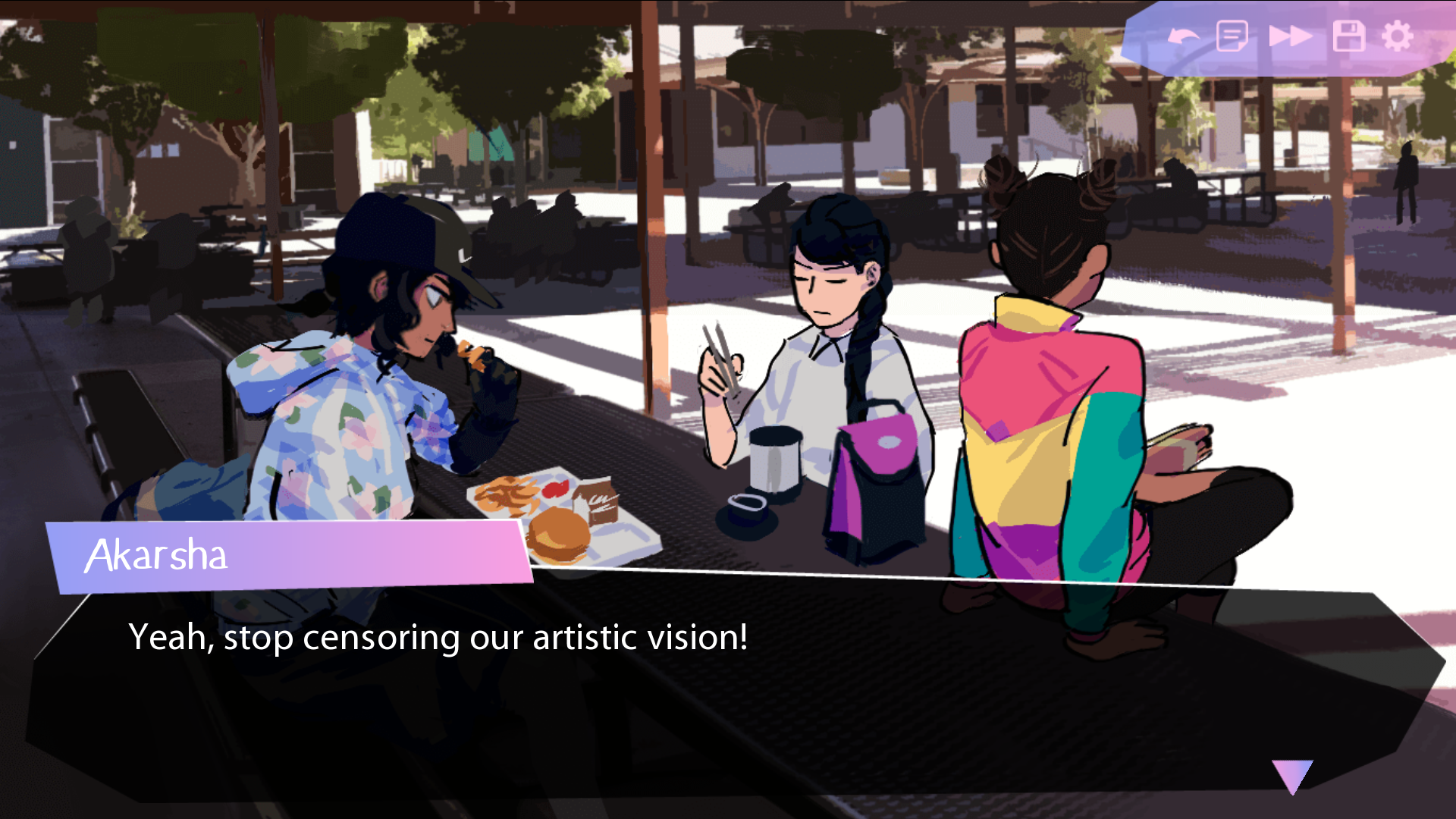
If anything, Butterfly Soup 2 appears almost unchanging to a fault, as it sticks to what it does best: the rambunctious interaction between its four, queer protagonists. At its core, the game is still an endearingly goofy and intimate story about the daily exploits of these Asian-American teenagers. Set a few months after the original (and also free!) Butterfly Soup, Diya, Min-seo, Akarsha and Noelle still attend school, play baseball, discuss their awkward, gushy feelings about teenage love and, of course, navigate the minefields of racism and bigotry in America. As with its predecessor, Butterfly Soup 2 is dialogue-heavy, and interaction is mostly limited to reading through paragraphs of conversations; you don’t really get to do much more.
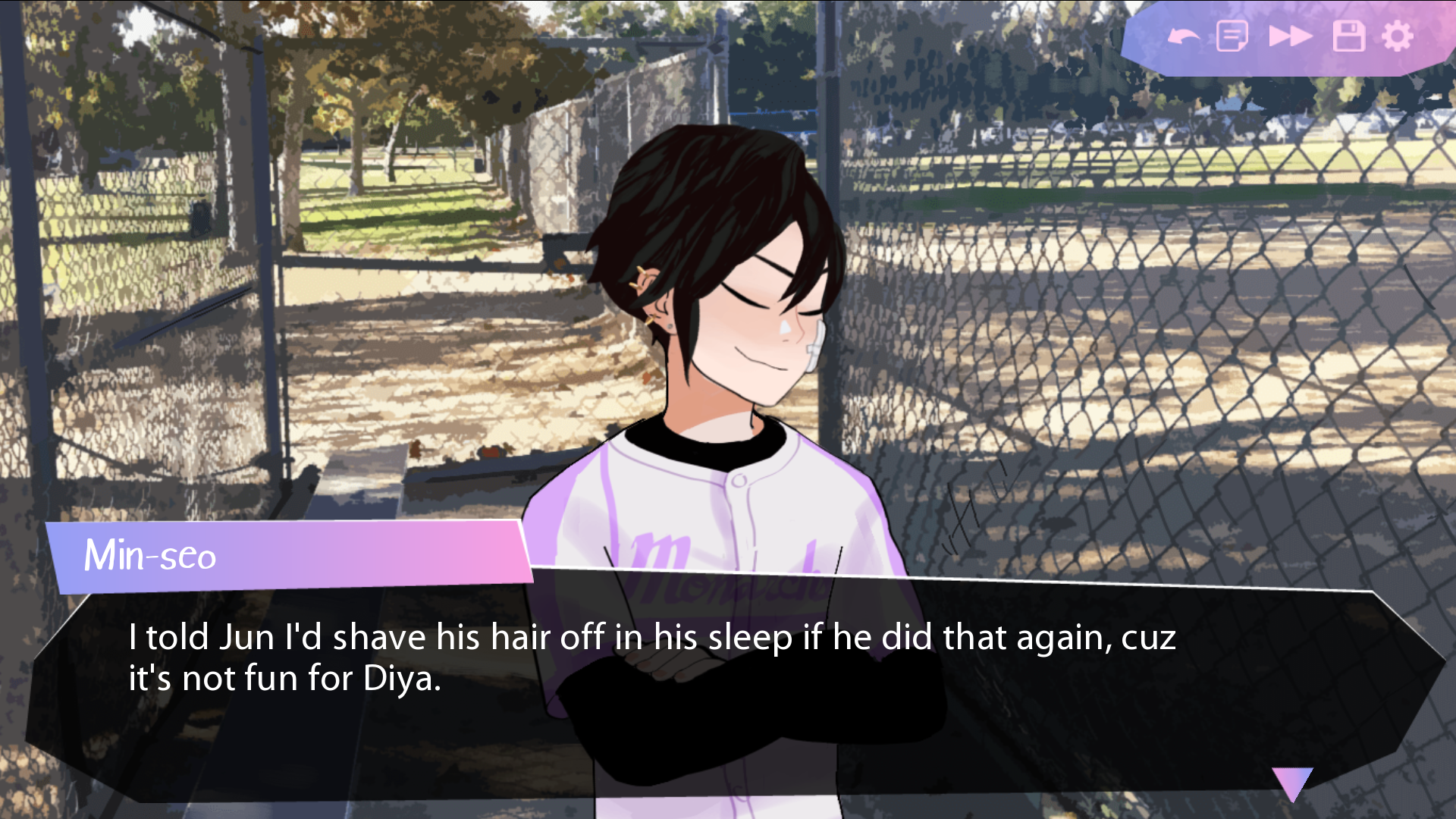
That said, watching these teens launch themselves into all kinds of anarchic hijinks is deeply euphoric. Baseball games in Butterfly Soup 2 continue to go awry (Noelle still hasn’t mastered the muscular strength to open a water bottle on her own), Akarsha is prone to introducing weird tangents to conversations (such as intense discussions on the anatomy of Teletubbies), and Min-seo is still threatening to stab anyone who makes Diya remotely uncomfortable. In particular, Butterfly Soup 2 is centred on the budding romance between Akarsha and Noelle, the inexplicably chaotic duo who spend most of their time together pranking one another, until Noelle blows up in sheer (or mock) exasperation at Akarsha. The dynamics between these friends are genuinely captivating—but this would probably come as little surprise if you’ve played the first game before.
But beneath Butterfly Soup 2’s veneer of delectable jokes and utter silliness is the sequel’s willingness to wade into some very choppy waters. It’s difficult to point out what these are without getting too spoiler-y, but the fact Butterfly Soup 2 never gets too melancholic or overwrought is also testament to developer Brianna Lei’s sensitivity as a writer.
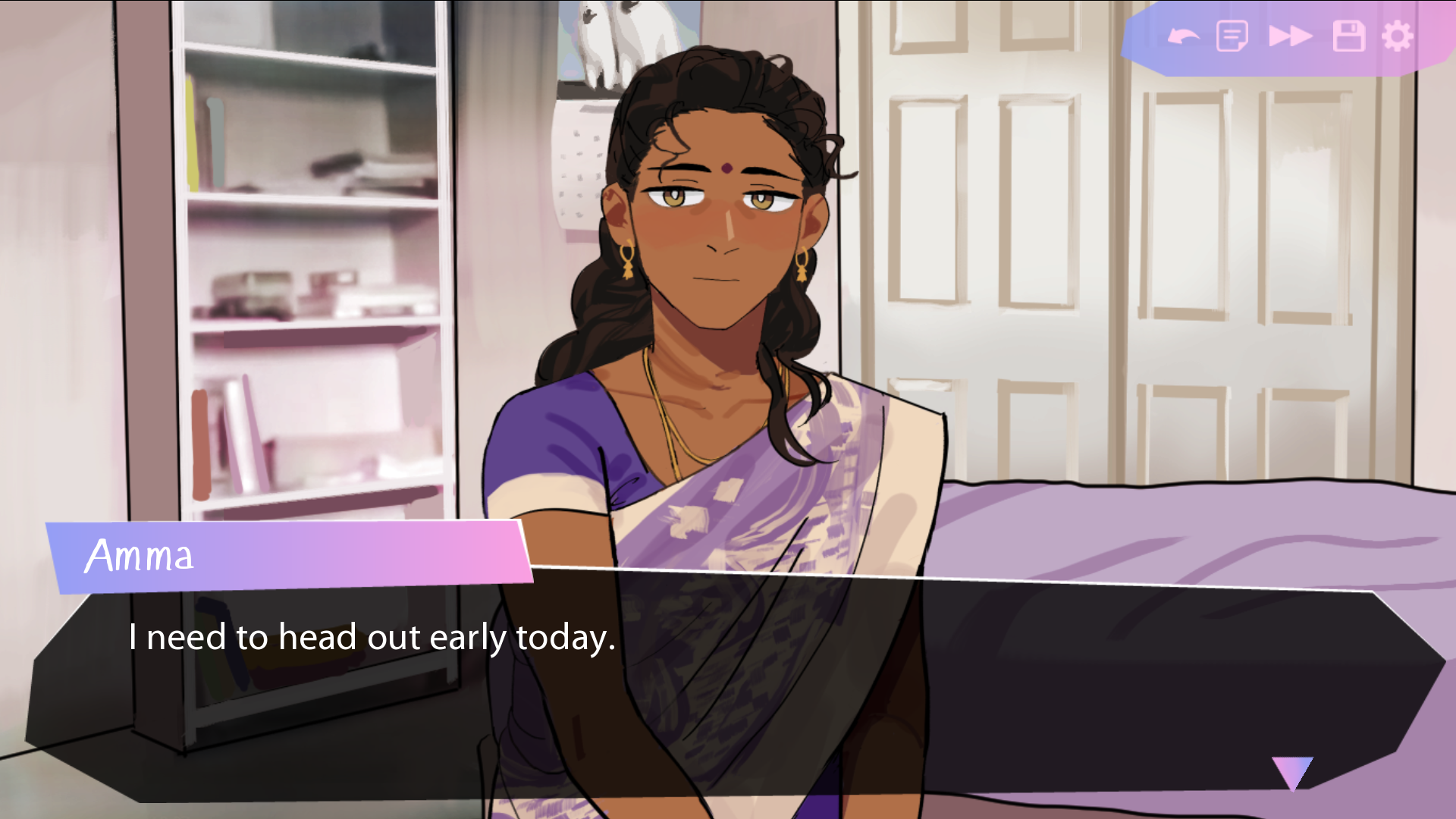
If the original Butterfly Soup is about coming to terms with yourself and self-acceptance—like a caterpillar in the midst of metamorphosis, sloshing around in its own enzyme fluids before emerging as a butterfly—then Butterfly Soup 2 is about growth. In this aspect, the visual novel becomes surprisingly introspective, with the teens confronting issues around racism, self-identities, strained familial relationships, and the echoes of generational trauma. What was particularly poignant was Diya’s tense conversations with her mother — conversations I’ve had with my own parents — and Noelle’s feelings of dissonance and displacement when meeting her extended family in Taiwan, due to her inability to speak fluent Mandarin. The painful struggles of being a child to disapproving immigrant and Asian parents are on full display here, and when combined with the turmoil of being a queer teenager, these are incredibly tremendous issues for these teens to work through. Fortunately, they aren’t alone in confronting these quandaries. Diya, Min-seo, Akarsha and Noelle have each other, and like the overwrought lyrics of a pop-punk anthem, the power of friendship will be their salve against these wounds.
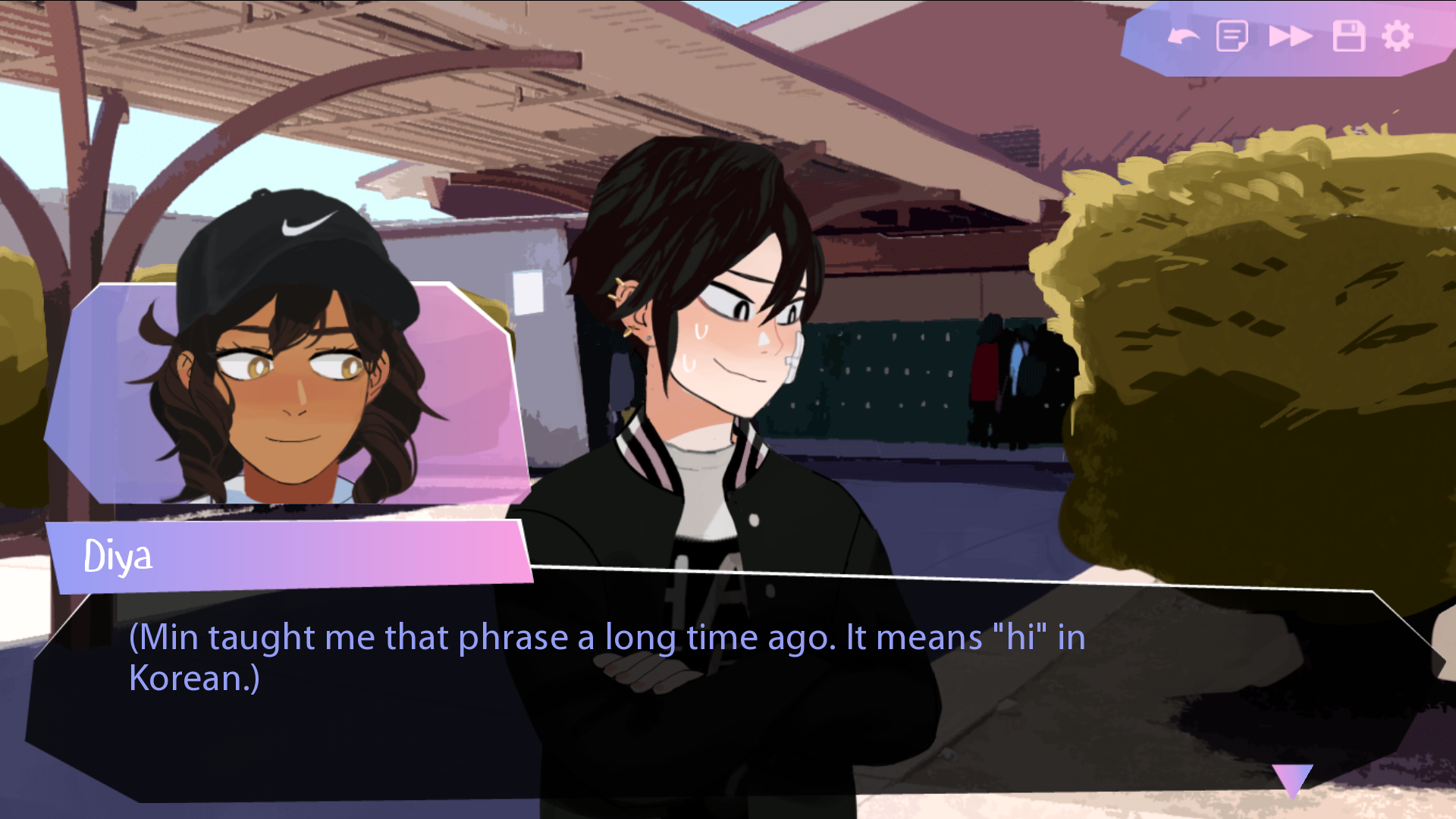
At its core, Butterfly Soup 2 is a reminder of how shared experiences can both comfort and provide a crucial pillar of support for one another. But perhaps you’re white, cis and straight (but if you’re reading Gayming, chances are you’re probably at least a little gay). Perhaps you don’t usually play visual novels. Perhaps you’re just looking for the next testosterone-fuelled game to punch baddies and eviscerate flesh bags with impunity. But don’t assume that this visual novel with four gay-sians — and with two queer teens of South Asian descent, too — won’t appeal to you. Because in this heartwarming tale about queer Asian-Americans lies a universal experience about human connection that you’ll deeply resonate with.




